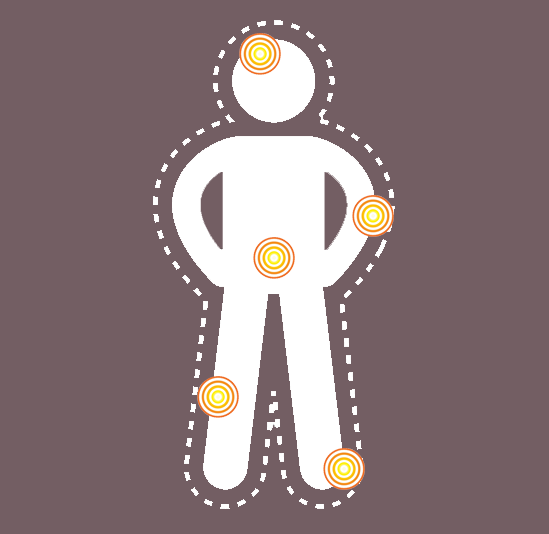You are here
Asthma
Asthma is an allergic disorder that affects your airways. It is characterised by spasm of the bronchi (the airway tubes), swelling of the mucous lining of the lungs and excessive production of thick, viscous mucus.
Asthma sufferers often describe the sensation as “starving for air” and the major concern with asthma is that it can interfere with the ability to breathe.
What are the symptoms of asthma?
Typical symptoms of an asthma attack are coughing, wheezing, tightness in the chest and difficulty breathing. The spasms that characterise an acute attack are not the cause of the disorder, but the result of chronic inflammation and hypersensitivity of the airways to certain stimuli. An attack can be caused by exposure to allergens or irritants.
What triggers asthma attacks?
There are two kinds of asthma: allergic and non-allergic, although the two of them can occur together.
Common asthma-provoking allergens include animal dander (dead skin and hair), chemicals, drugs, dust mites, environmental pollutants, feathers, food additives (such as sulphites and tartrazine), mould and tobacco smoke – but any kind of allergen can trigger an attack.
Factors that can trigger non-allergic asthma attacks include adrenal disorders, anxiety, temperature changes, exercise, low blood sugar and stress.
Why do I have asthma?
The incidence of asthma has shot up in the last thirty years, particularly among children. The cause of asthma’s continuing rise has led many experts to speculate that increasing environmental pollution may be to blame. Situations in which there is an abundance of dust and chemical particles, especially in enclosed environments are known to be a trigger for asthma attacks.
How is asthma usually treated?
Conventional treatment of asthma usually involve learning to recognize your triggers and taking steps to avoid them, along with long-term asthma control medications, such as beta-agonists (which relax muscles of the airways), and inhaled corticosteroids (inhibit inflammation). Allergy shots (immunotherapy) may help if your asthma is triggered or worsened by allergies.
How can Foodwise help?
Do you have asthma? Foodwise can help.
Inhalers, beta-agonists and allergy shots are not your only options. We have all the nutritional information and dietary advice to help manage asthma naturally and bring lasting relief to many of its symptoms.
Join nowHow does healthy nutrition help treat asthma naturally?
Although many people with asthma rely on medications to prevent and relieve symptoms, the effective treatment of asthma requires the consideration and control of many aspects, including avoiding airborne allergens.
There's no asthma diet that will eliminate all your symptoms. But your food choices can make your asthma worse, alleviate the symptoms or increase your risk of developing asthma in the first place.
The right food to control inflammation
Since inflammation plays a key role in asthma, a dietary and lifestyle approach puts the emphasis on controlling inflammation.
An effective approach to managing asthma includes:
- following a whole food, fibre-rich anti-inflammatory diet
- identifying food allergies and intolerances
- maintaining a healthy weight
- avoiding inflammatory food
- avoiding chemical triggers
- correcting nutritional deficiencies
as well as the appropriate use of natural supplements and home remedies.

